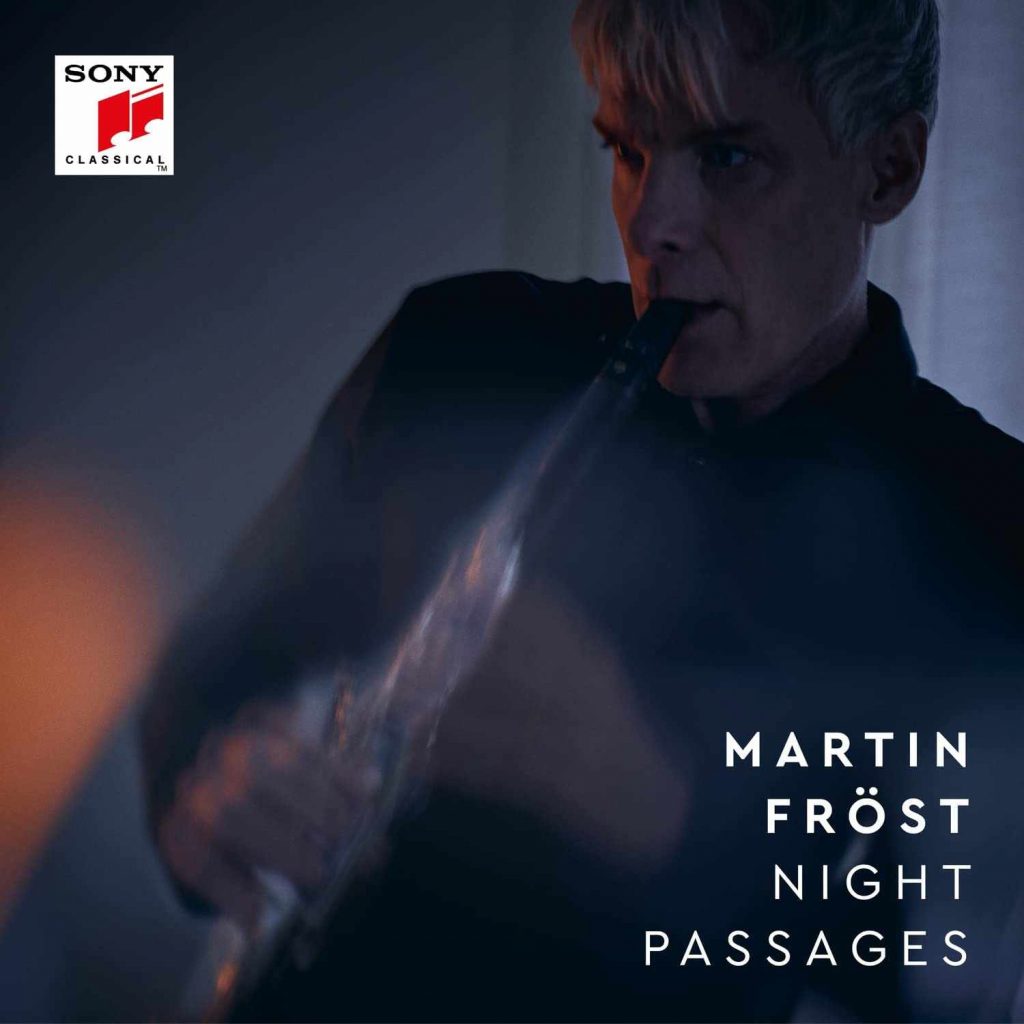The following review is taken from the Winter 2022 issue of Clarinet & Saxophone magazine. For more reviews, news, and features from the single-reed world, join to receive our quarterly magazine and other membership benefits.
NIGHT PASSAGES
Martin Fröst (clarinet)
Sony Classical
Superstar clarinettist Martin Fröst’s new disc Night Passages ‘charts a nocturnal journey through the mystical and the melancholic, the playful and the profound’, according to the Sony Classical website. Promotional blurb aside, there is certainly an intriguingly hushed atmosphere to this album, suggesting low lights and late nights. Even the more boisterous tracks have a slightly muted quality.
It is interesting to hear Fröst creating a sound for ‘up close’ rather than projecting to the back of the hall in classical concerto mode. The more intimate recordings of Eddie Daniels come to mind, in particular Beautiful Love. Fröst’s tone is the definition of smoothness, and his articulation is always light and airy, with the fluidity of speech.
Fröst collaborates here with pianist Roland Pöntinen and bassist Sébastien Dubé to present items from the baroque era against a counterpoint of jazz and folk. Featured composers include Scarlatti, Chick Corea, Bach, Purcell, Richard Rogers, Rameau, Handel and Fröst himself. Different styles are mixed throughout the programme, avoiding any obvious segues, and none of the tracks outstays its welcome. The recital moves along quickly, like a musical taster menu.
The opening Scarlatti sets a mellow tone and is immediately followed by some spicy Corea. The third track, the perennial ‘Jesu Joy of Man’s Desiring’, took me by surprise with its disarming simplicity. The recital continues along these lines; each new selection offers a gentle contrast to the track before, with overall coherence provided by the unified trio line-up.
There is a definite jazz sensibility here, even in the baroque tracks. Fröst’s improvisation takes flight in Rogers’ ‘It Never Entered My Mind’, complete with impossibly quiet altissimo notes, subtle flutters and other extended techniques, always tastefully deployed.
This record contains too much music to comment on every detail, but I would like to highlight Fröst’s own ‘Prelude to Dorotea’, a short but impressive Balkan-style improvisation. This leads on to the traditional ‘Polska from Dorotea’, which features some of the album’s most experimental moments from the bass player, including harmonics and vocalisations – fascinating stuff and relentlessly high quality.
This project shows Fröst’s versatility without excessive showing off. Recommended for those melancholic winter nights.
Chris Walters


